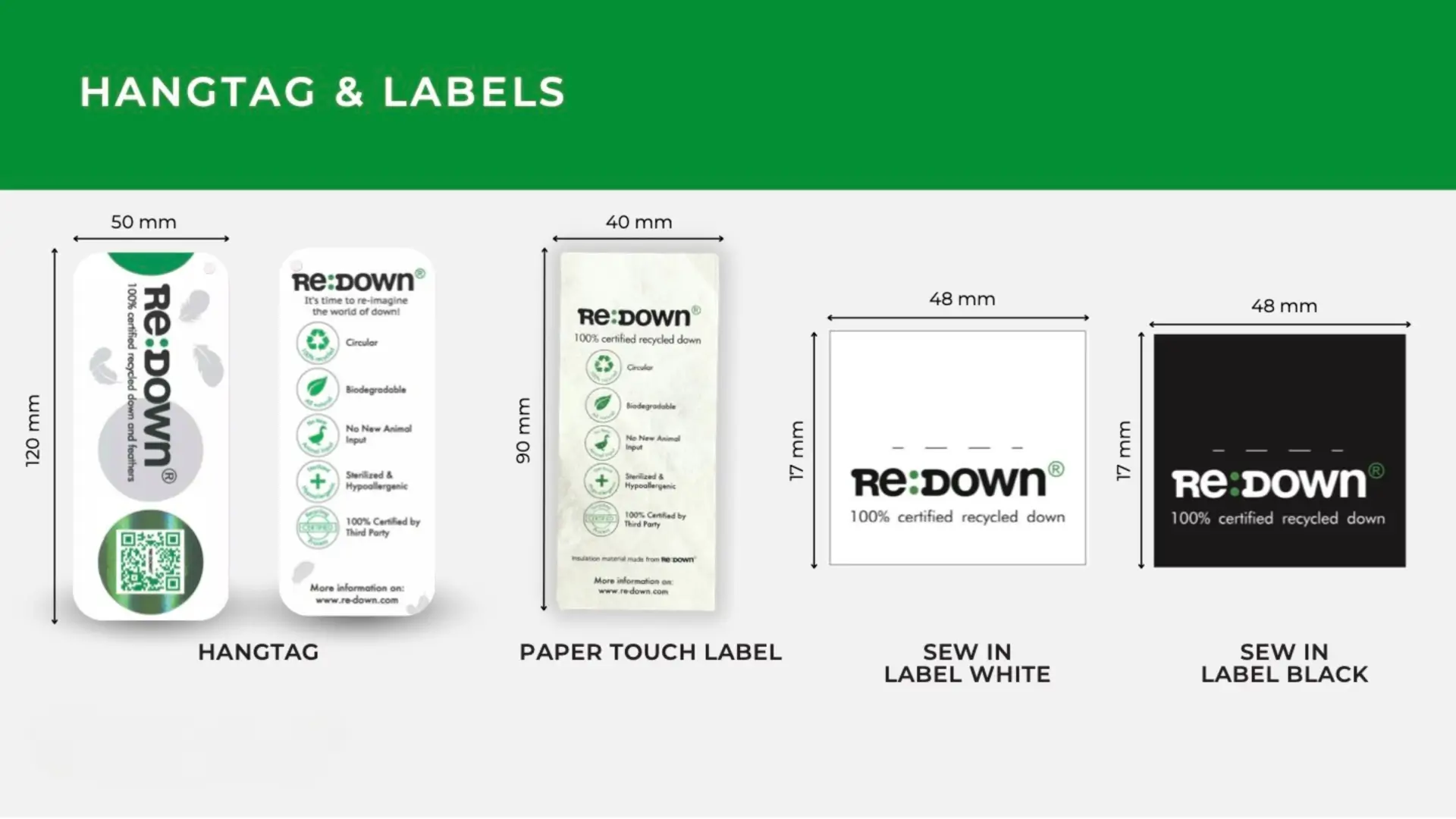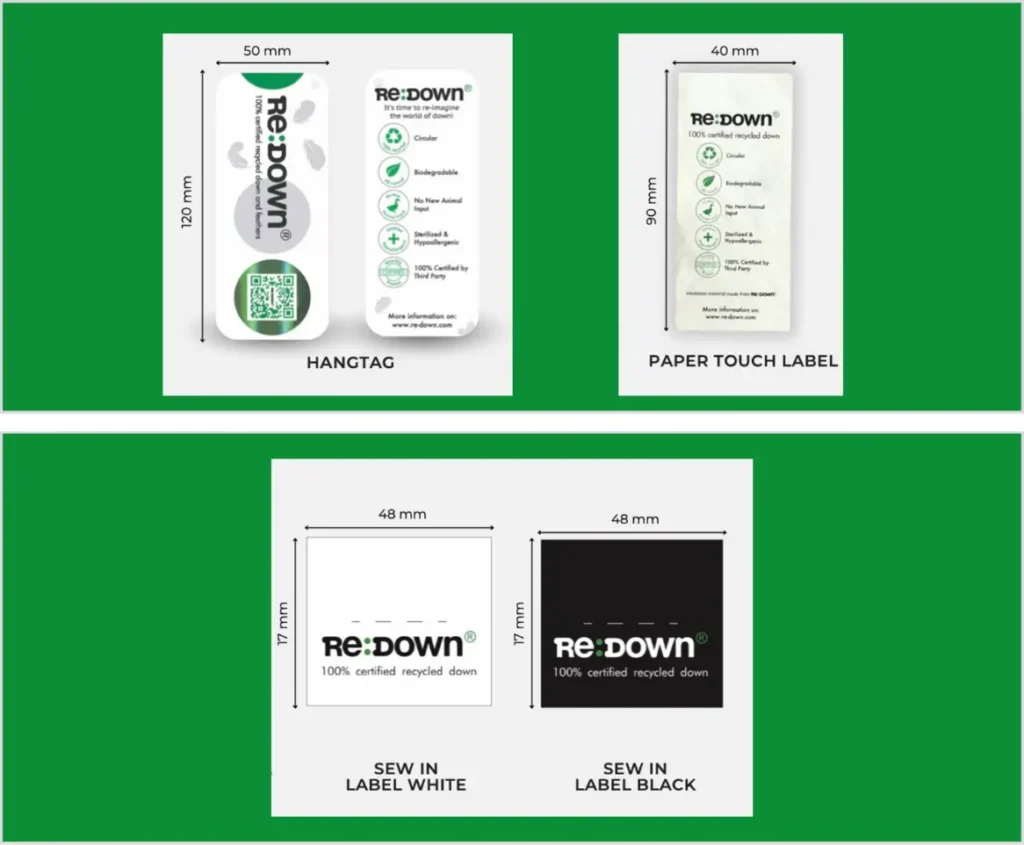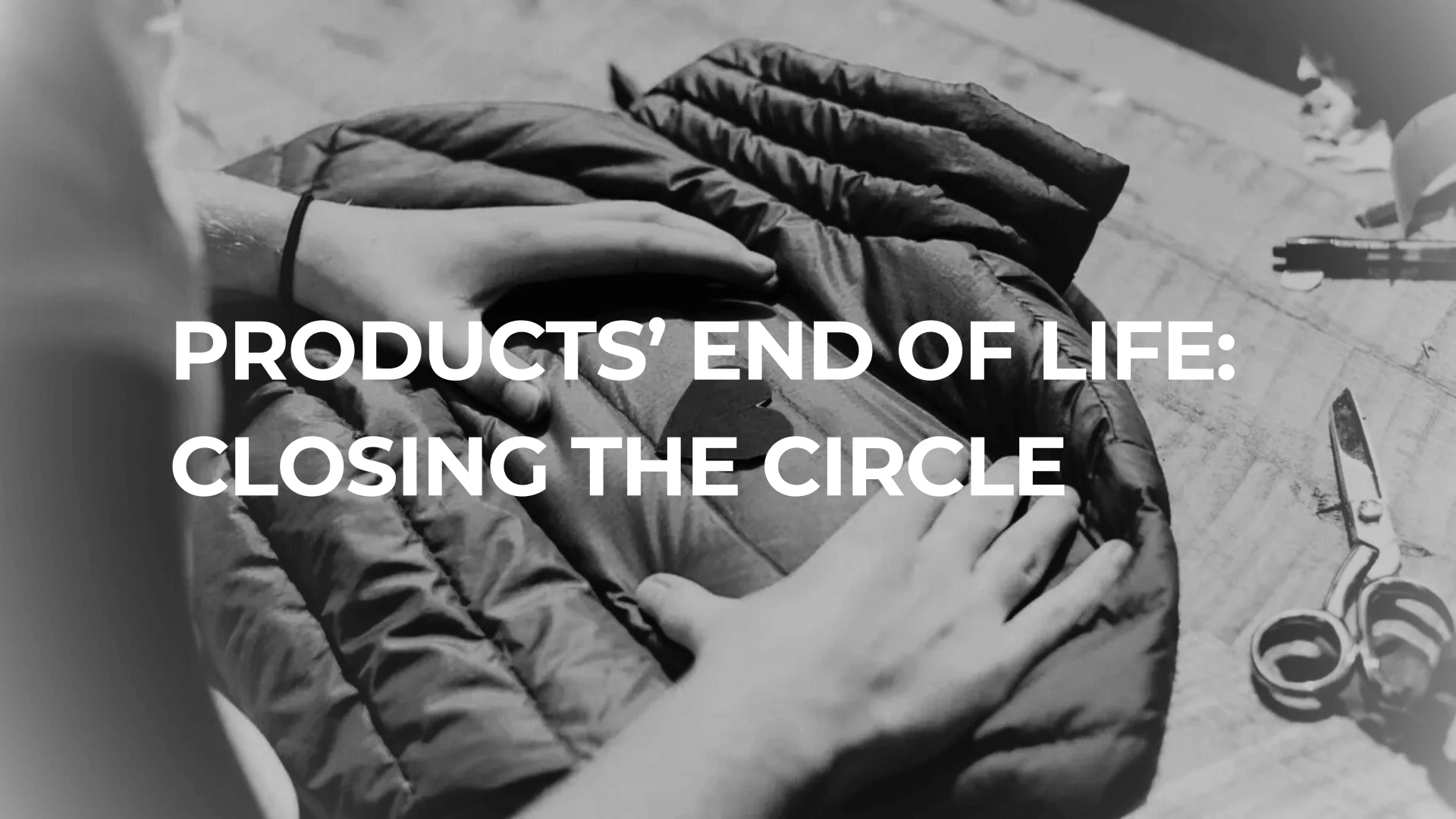The power of Labeling:
Enhancing Consumer Awareness of Recycled Down
In today’s fashion industry, sustainability is a key priority for both brands and consumers. Effectively communicating sustainable choices through clear and transparent labeling is crucial, as it shapes consumer perceptions and influences purchasing decisions. The type of label—whether paper or woven—can also impact these perceptions, ultimately affecting sales.
Why Labeling Matters for Recycled Down Apparel?

Labels serve as a vital tool for brands to communicate a garment’s materials, origin, and care instructions. For products made with recycled down, labeling becomes even more significant, as it demonstrates a brand’s commitment to sustainability. Transparent labeling educates consumers on the benefits of recycled materials, fosters trust, and aligns with the increasing demand for eco-friendly fashion.
Research highlights that consumer attitudes toward apparel shopping play a major role in their willingness to pay a premium for sustainable products. Recognizable ecological and ethical labels enhance product appeal and encourage sustainable purchasing decisions. (Source: Springer Research)
Paper vs. Woven Labels: How They Shape Consumer Perception
The choice between paper hang tags and woven labels can influence how consumers perceive the quality and sustainability of a garment.
Studies suggest that hang tags emphasizing social responsibility positively influence consumer attitudes and brand loyalty. (Source: SAGE Journals) This indicates that both the presence and type of label can significantly shape consumer behavior.
Best Practices for Labeling Recycled Down Apparel
To enhance consumer trust and maximize the impact of labeling, brands should adopt the following best practices:
1. Sustainable Materials – Use recycled paper or organic fabrics for both paper and woven labels to maintain brand consistency with sustainability values.
2. Clear and Informative Design – Labels should explicitly state the use of recycled down, highlight environmental benefits, and include recognized certifications.
3. Strategic Placement – Woven labels should be visible yet comfortable, while paper hang tags should offer additional sustainability messaging and be recyclable or reusable.
4. Consumer Education – Use labels to inform consumers about the importance of recycled materials and their impact on reducing waste and carbon footprint.
Re:Down: Elevating Your Sustainability Communication
At Re:Down, our commitment goes beyond supplying high-quality recycled down—we support our brand partners in effectively communicating sustainability. Collaborating with Re:Down grants brands access to our ready-to-use hang tags and woven labels, designed to reinforce transparency and environmental responsibility.
We offer three distinct labeling options (see our recap), allowing brands to choose the best fit for their sustainability messaging. By integrating thoughtful labeling strategies, brands can enhance consumer confidence, increase engagement, and drive sustainable fashion forward.


Posted on 3월 31, 2025





